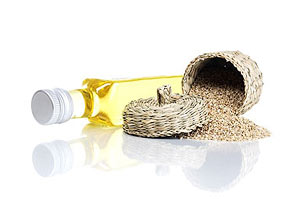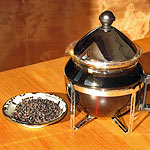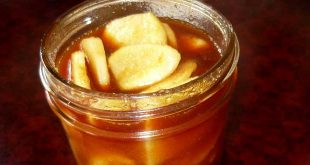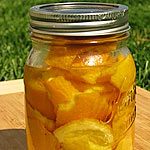Oil pulling originated as an Ayurveda practice possibly 10,000 years ago but was coined as “oil pulling” in the 1990’s by Ukranian Physician, Dr. F. Karach. Historically oil pulling has been done to improve a variety of different health ailments. Some say they have noticed health problems mysteriously clear up after just a few days of oil pulling-as though the toxins are pulled right out of them.
I decided it was time to learn what oil pulling is while attempting to separate the real benefits of oil pulling from the hype. Sometimes scientific studies are in short supply when it comes to natural remedies like oil pulling, so I was relieved to find there already have been a few studies indicating support for the benefits of oil pulling, particularly in the area of oral care.
From there we can deduce why some of the other testimonial health benefits may be taking place.
Oil Pulling to Reduce Streptococcus Mutans
 Most pathogens effecting humans are gram positive organisms. This includes Streptococcus mutans which can survive in environments with or without oxygen and have an affinity for the mouth where, when out of balance, can contribute to tooth decay. There are 25 known species of Streptococci living in the mouth, but S. mutans are especially bad for those with a typical western diet because they use sugar to form the plaque that adheres to teeth.
Most pathogens effecting humans are gram positive organisms. This includes Streptococcus mutans which can survive in environments with or without oxygen and have an affinity for the mouth where, when out of balance, can contribute to tooth decay. There are 25 known species of Streptococci living in the mouth, but S. mutans are especially bad for those with a typical western diet because they use sugar to form the plaque that adheres to teeth.
S. mutans turn other sugars into lactic acid, which is a byproduct of their digestion. The combination of the resulting plaque and lactic acid deplete minerals from your teeth making them especially vulnerable to tooth decay.
While there are hundreds of species of bacteria in our mouths, many are actually beneficial. Trouble arises only when potentially harmful bacteria, such as streptococcus mutans, get out of balance with other organisms, creating a hostile environment that is prone to cavities and infection.
Health Risks Associated with Harmful Bacterial Byproducts
Unfortunately, the damage doesn’t stop with your mouth. Some of the exotoxins that are bacterial byproducts can seep into the bloodstream sublingually just by swallowing your own saliva.
And since everything in your body is interconnected anyway, a compromised immune system can lead to an assortment of seemingly unrelated acute and chronic conditions such as rheumatoid arthritis, diabetes, heart disease, digestive issues, headaches, respiratory problems, or Alzheimer’s disease.
Streptococcus mutans are commonly found in the heart tissues of those suffering from cardiovascular disease. Periodontal infections seem to increase your risk of cardiovascular disease and atherosclerosis.
Benefits of Oil Pulling
Evidence suggests that oil pulling with sesame oil (and presumably others with antibacterial properties, such as coconut oil) leads to a reduction of plaque and streptococcus mutans. This would make oil pulling a proactive measure in maintaining good oral hygiene, which could have widespread benefits for the rest of the body as well.
How to Do Oil Pulling (or oil swishing):
Watch How to Do Oil Pulling from Mama Natural
Oil pulling, or “KAVALA GRAHA,” is quite a simple process:
1) First thing in the morning before eating, swish one tablespoon of sesame oil, or other cold-pressed oil like coconut oil around your mouth, teeth and gums for 15-20 minutes.
2) The oil will sink down into your gums and crevices helping to absorb less accessible bacteria.
3) Take care not to gargle it in your throat as that could cause you to gag and spread bacteria.
4) The used oil should never be swallowed after oil pulling. Think of it like getting an oil change for your car- your body runs a little smoother when you get the crud out.
5) Spit the used oil into a receptacle such as a disposable cup or jar. Although I admit I have spit it into the toilet, it is not an environmentally friendly thing to have a lot of people putting oil into our waterways.
One of the first things people often notice after oil pulling is an improvement in oral hygiene. Teeth may appear whiter, breath fresher, and gums healthier.
Some people have reported that oil pulling improves sleep quality, skin problems, joint pain, allergies, bad breath, sinus problems, teeth, receding gums, mouth infections, and digestive troubles.
Additional Tips for Oral Care:
Saliva helps protect against the growth of colonizing bacteria such as streptococcus mutans. Chewing gum, especially with xylitol, may be beneficial.
Tea tree oil mouthwash, green tea extract, a compound found in nutmeg called macelignan, licorice root extract of glycyrrhizol, and a topical antibiotic called Keep32, or the curcuminoids found in turmeric can all also help to reduce the quantity of Streptococcus mutans in your mouth. Any of these combined with oil pulling with coconut oil or sesame oil are sure to lead to better overall oral health.
Have you tried pulling oil? We’d love to hear your results with oil pulling.

 Earth Friendly Goodies If it's Good for the Earth it's Good for Your Health
Earth Friendly Goodies If it's Good for the Earth it's Good for Your Health 



Wonderful. In indonesia coconut oil usualy use as traditional oil cooking. The people who use this oil look very healthy and rare to get sick.
Hi really enjoyed reading your blog. I must admit I stumbled upon by accident I was actually looking at car insurance and had never heard of oil pulling. I was intrigued so I thought I would have a look. It has now got me thinking about the health benefits so I am definately going to have another look.
So thanks again lee
I agree Lee oil pulling is really fascinating stuff – I’ve been doing it for a little while and it seems to be improving that funky morning breath. 🙂 and maybe even a bit of teeth whitening. I hope you give it a try.
My first time to hear about oil pulling, here in our country virgin coconut oil is taken like medicine because it provides a lot of health benefits.
Chris, thanks for commenting on one of my blogs. I thought I would return the favor. Oil pulling helps to strengthen your gums by pulling out infection. The germs stick to the fat in the oil and come out when you spit. Coconut oil is also great for weight loss and taking care of your skin. I also have a blog on coconut oil!
Interesting article! I’ve never heard of oil pulling before. It reminds me of a recent article I posted about the Oil Cleansing Method. Have you heard of this?
It was new to me too Alexandra – have you tried it yet? 🙂 I enjoyed your oil cleansing method post as well I’ve heard of the benefits of using coconut oil on the skin but your method sounds interesting as well. I’m glad it is working for you.
I have been oil pulling for two weeks and love it! I use a drop of Melaluca EO or Shield EO, which tastes better than Melaluca. After spitting out, I then swish warm saltwater, then brush with toothpaste or baking soda. I am addicted to this, I see an improvement already. Thanks for the article, you touched on a few things that will help me explain to people why it is so beneficial.
Hi Chris,
I oil pulled for about a year or so. Not sure why I stopped but am considering starting again due to the benefits. The No. 1 benefit was noticeably less plaque. Without questioning my hygienist, after 6 months of oil pulling she said “What have you been doing?” you hardly have any plaque. So there!
That’s great Susan – always fun when the dentist notices and you can say you are doing something radical like oil pulling. 🙂 That happened to me when I switched to an herbal toothpaste and mouthwash I reversed some gum disease and they were wondering how it happened so fast.
I used sesame oil back then but have decided to give coconut oil a whirl this go around because it tastes better and I use it for cooking.
I use coconut oil in my beauty regimen as well as oil pulling. I have employees and patients alike that swear by the benefits of oil pulling for not just their oral health, but their overall systemic health as well!